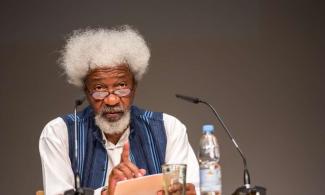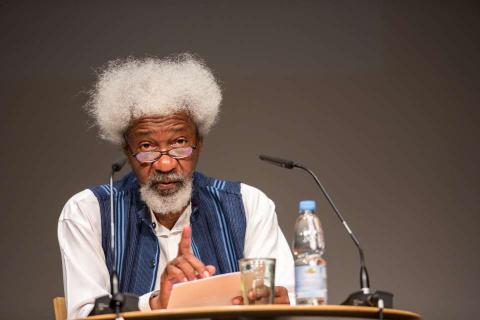
In a letter addressed to African leaders, Soyinka together with Makhily Gassama (essayist); Cheikh Kane (writer); Odile Tobner (Librairie des Peuples Noirs, Cameroon); Iva Cabral (daughter of Amilcar Cabral, University of Mindelo); and Olivette Otele (Bristol University), said that the Coronavirus outbreak was a great opportunity for the continent to show the world that it was capable of solving its own problems.

Renowned writer and Nobel laureate, Prof Wole Soyinka, and other African leaders have called on heads of governments across the continent to depend less on help from Europe, America and Asia in finding solutions to its problems.
In a letter addressed to African leaders, Soyinka together with Makhily Gassama (essayist); Cheikh Kane (writer); Odile Tobner (Librairie des Peuples Noirs, Cameroon); Iva Cabral (daughter of Amilcar Cabral, University of Mindelo); and Olivette Otele (Bristol University), said that the Coronavirus outbreak was a great opportunity for the continent to show the world that it was capable of solving its own problems.
The letter reads partly, “The challenge for Africa is no less than the restoration of its intellectual freedom and a capacity to create – without which no sovereignty is conceivable. It is to break with the outsourcing of our sovereign prerogatives, to reconnect with local configurations, to break with sterile imitation, to adapt science, technology and research to our context, to elaborate institutions on the basis of our specificities and our resources, to adopt an inclusive governance framework and endogenous development, to create value in Africa in order to reduce our systemic dependence.
“More crucially, it is essential to remember that Africa has sufficient material and human resources to build a shared prosperity on an egalitarian basis and in respect of the dignity of each and every one. The dearth of political will and the extractive practices of external actors can no longer be used as excuse for inaction. We no longer have a choice: we need a radical change in direction. Now is the time!”